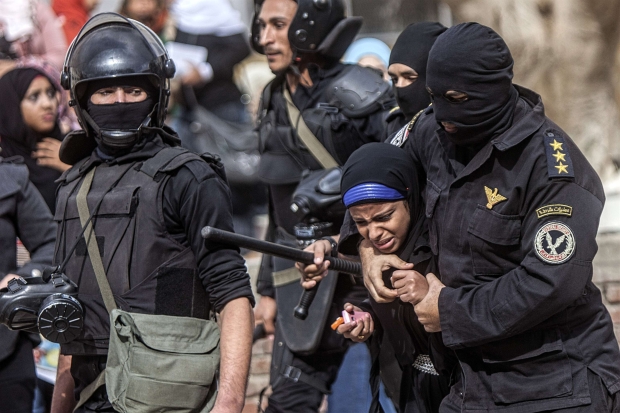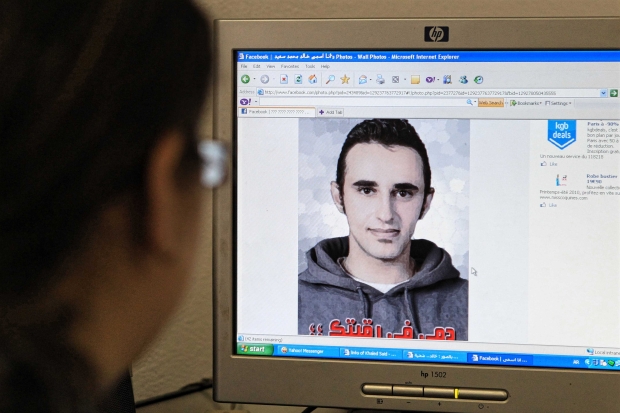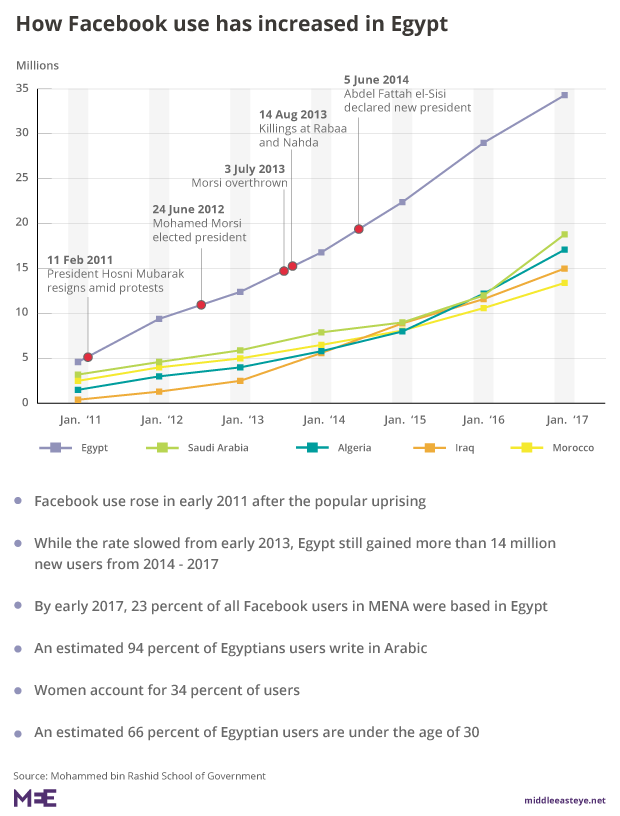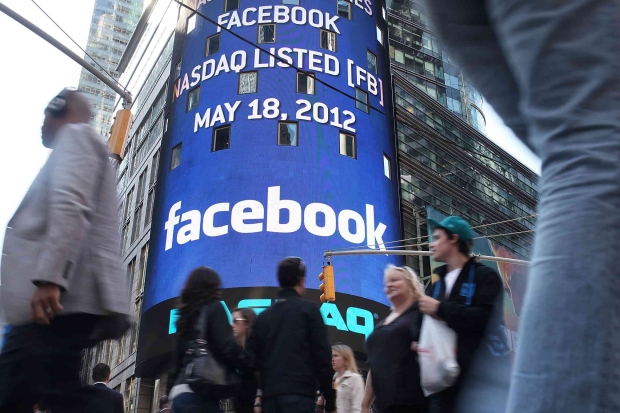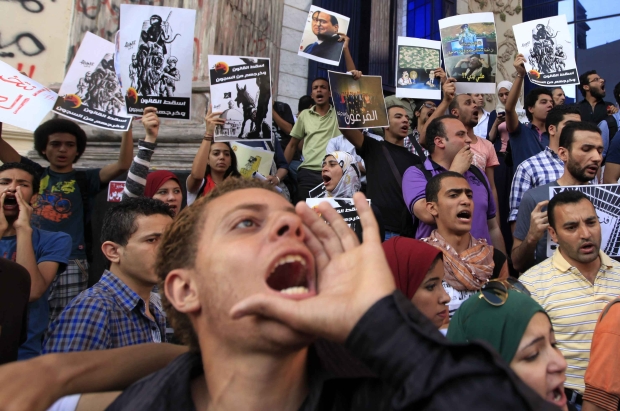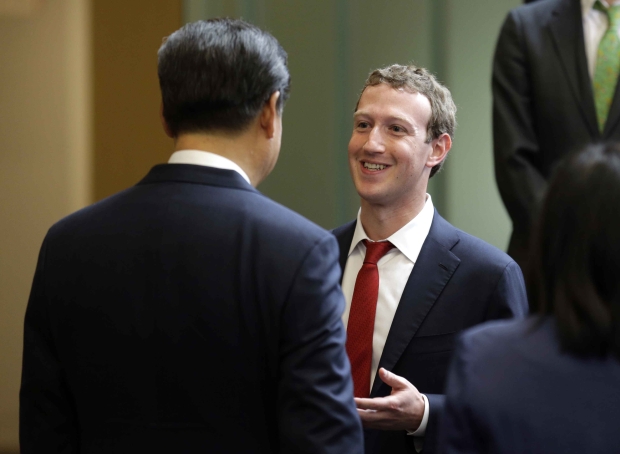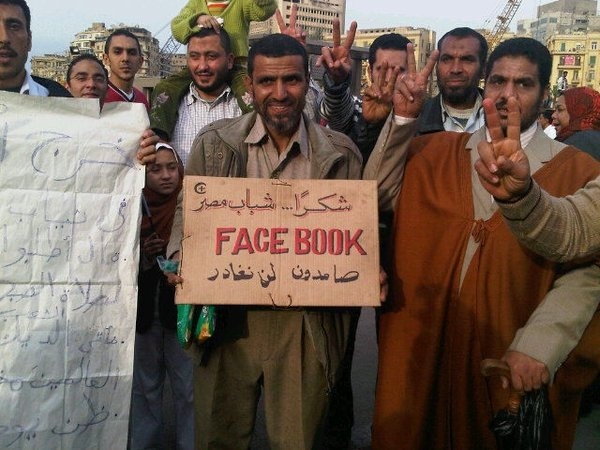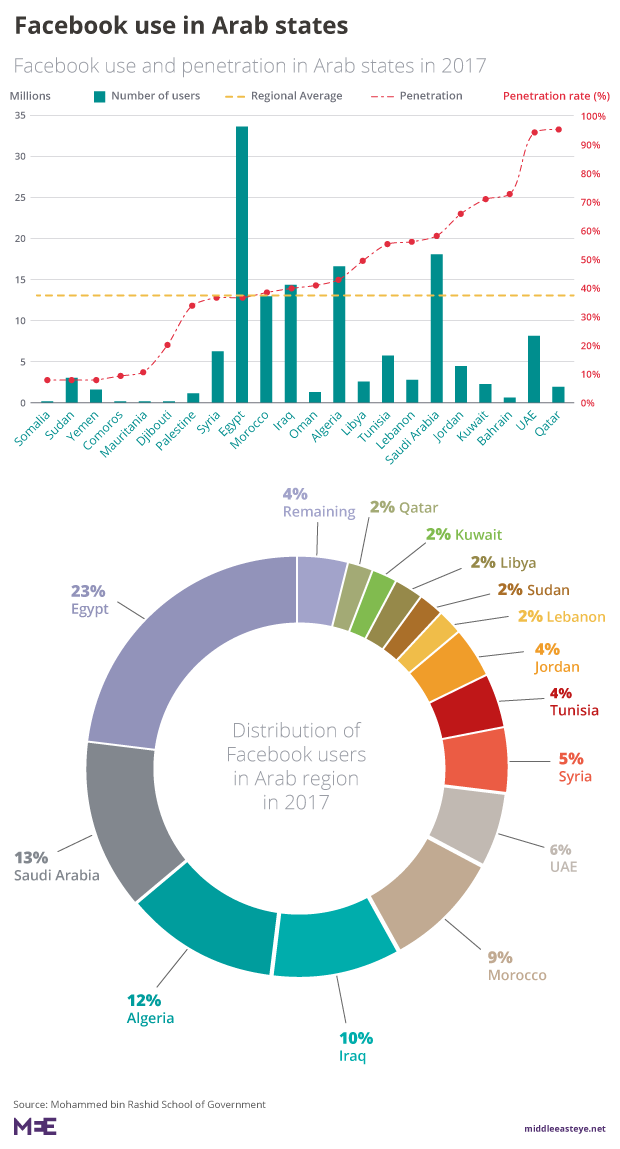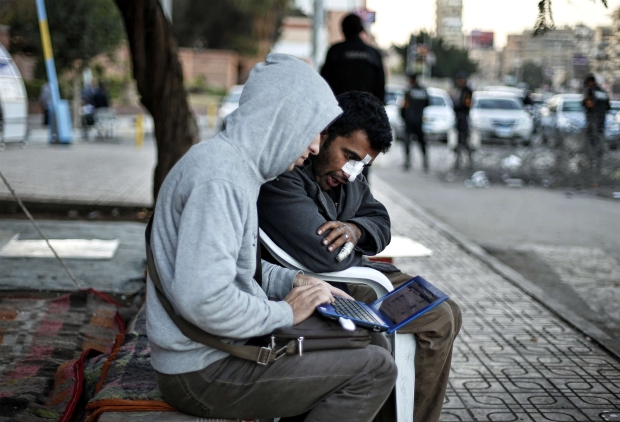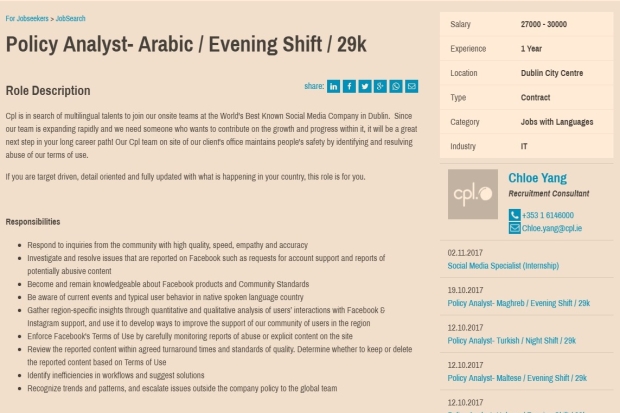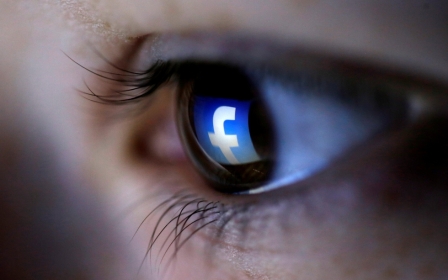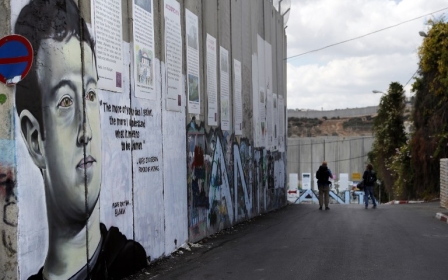Revealed: Seven years later, how Facebook shuts down free speech in Egypt
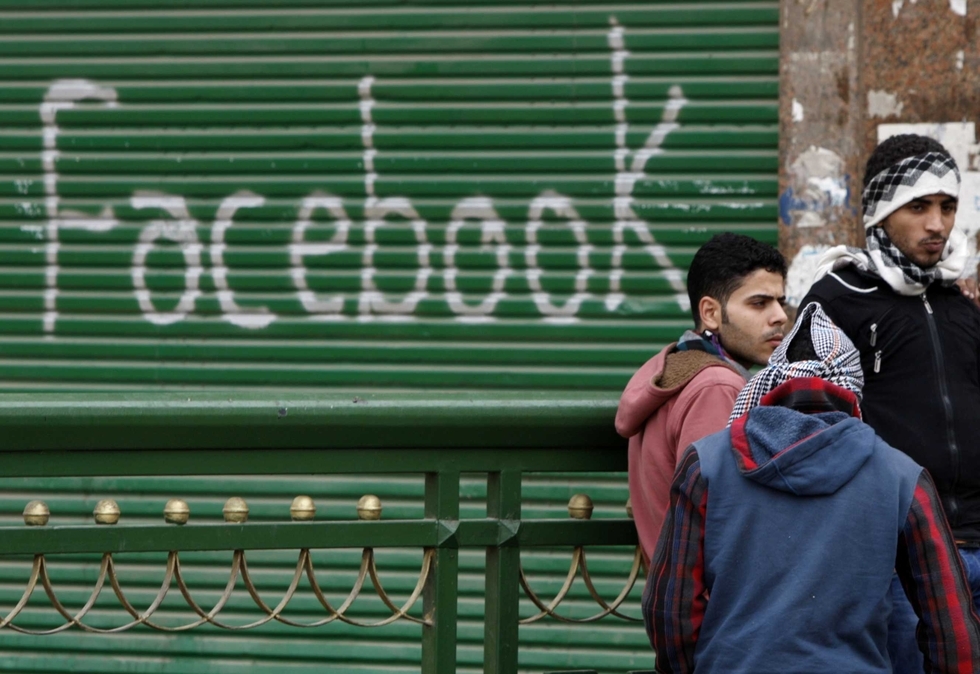
Seven years after it helped launch the uprisings that led to the downfall of longtime leader Hosni Mubarak, Facebook is shutting down Egyptian activism online, Middle East Eye can reveal.
The social media platform was lauded as a critical factor behind the uprisings – or "The Facebook Revolution" – which began on 25 January 2011 and drew tens of thousands of Egyptians onto the streets, changing their country’s trajectory.
But Egyptian opposition activists of all political shades and stripes told MEE that during the past year, the company has repeatedly banned their pages and shut down their livestreams after trolls reported their posts over and over again.
Sawsan Gharib is a real estate agent in Texas and US spokesperson for Egypt’s April 6th movement, which was influential in the uprisings that ousted Mubarak. “I can’t communicate with other activists," she said. "I can’t communicate with people."
Gharib said her personal page has been shut down more than six times during the past year. A second page she set up because of problems with the first has also been banned repeatedly.
One of April 6th Facebook pages – called Mubasher 6 April or April 6th Direct - where the movement shared news, photos and videos, was also removed last July. The movement has since opened another page, but all the content posted on the original page is now gone. “All lost,” Gharib said.
She believes pro-government trolls have targeted activists and movements like hers because they want to shut them down. She regularly appears on Turkish and Egyptian TV channels, speaking out against the government and sharing her views in Egyptian slang, attracting nearly 7,000 followers. “The homeless guy can understand me,” she said.
'I can’t communicate with other activists. I can’t communicate with people... I'm afraid the next time that I will be banned for life'
- Sawsan Gharib, US spokesperson, April 6th movement
Gharib is also one of the administrators of several April 6th Facebook pages. When she is banned, she is not only disconnected from her friends and family, she is also unable to run the movement's page and organise with other activists effectively.
The trolls "are trying to curb our hands and not make us do anything”, she said. "I’m afraid the next time that I will be banned for life.”
Yet despite repeated attempts to contact Facebook, neither Sawsan nor any of the activists who MEE interviewed has had more than an auto-response from the company.
They still do not understand why their posts have violated the digital giant’s terms and conditions nor what they can do to stop their pages from being banned.
Through a PR company hired by Facebook, MEE sent the social media company a list of the activists whose pages have been banned (with each of their approval) and asked for comment, but has not heard back ahead of publication.
Where Facebook falls short
One major reason behind the bans is scale. Since "The Facebook", as it was initially called, was launched in February 2004, the platform has grown exponentially.
The company is well aware of the problem, experts told MEE, but hasn’t invested enough to ensure that moderation, particularly in foreign languages, has kept pace with its growth over the past 14 years to hosting more than two billion users.
The struggle of Arab activists also comes as Facebook promotes its efforts, at the bequest of governments, to shut down the pages of "extremists", and has proved increasingly willing to pull down pages in order to continue operating in countries like Israel and Vietnam.
These moves – including the recent decision to shut down the page of Chechen leader Ramzan Kadyrov – have left Facebook open to criticism that its policies are opaque and subjective. As Julia Angwin and Hannes Grassegger wrote in Pro Publica, the company may well be operating one of the least accountable and most far-reaching censorship projects in history.
That's little comfort for the Egyptian activists, who are finding that the platform, which was once a free speech frontier and their best medium of expression, has transformed into a corporate-controlled battleground – and one on which they are losing.
"In Egypt, Facebook is the most important, if not the only way, of communication that is in theory free of government control," said Mohamed Okda, an Egyptian political consultant and media commentator. Okda said he started to notice the increasing bans on activist pages last spring and believes thousands of activists, may have been impacted.
"I find it appalling that Facebook which is supposed to be connecting us is using its monopoly on power to silence us," he said.
'Just give them the internet'
Many date the launch of the Facebook page "Kullena Khaled Said" – or "We are all Khaled Said" - as a key moment that galvanised the uprisings that followed.
Wael Ghonim, then a Google marketing executive in Dubai, started it in June 2010 after Egyptian police dragged 28-year-old blogger Khaled Said from an internet café and beat him to death, across the street from Said's family home.
“Today, they killed Khaled,” Ghonim wrote on the page. “If I don’t act for his sake, tomorrow they will kill me."
The page led to protests, which in turn gave way to an uprising. And while experts and activists have since questioned the degree to which social media platforms were behind the regional revolts, their power as tools to mobilise protest was now out in the open.
“If you want to liberate a society, just give them the internet,” Ghonim told CNN on 11 February 2011, the day when Mubarak stepped down from power.
“The internet helps you fight the media war which is basically a war that the Egyptian government – the Egyptian regime – play[ed] very well in 1970, 1980 and 1990. When the internet came, they really couldn’t.”
For many Egyptians, especially activists, Facebook became, and remains, a key method of communication, accounting for 23 percent of users in the region, according to a 2017 research report from the Mohammed Bin Rashid School of Government in Dubai.
Protests without police permission had been banned since November 2013. There was also an increasing crackdown on media outlets. Social media was a place where Egyptians could network, get news they couldn’t find elsewhere – or in the case of Bahgat Sabr, report their own.
'What democracy could do'
Sabr hosts a near-daily show focused on Egyptian politics, which is livestreamed on Facebook from his kitchen – even from his balcony or his car – in New York City.
An air-conditioning contractor by trade, the bald and brash 50-year-old has grown a steady following among Egyptian viewers who like his straight-talking street language.
The point of the show, he said, is not specifically to criticise Abdel Fattah al-Sisi – although he is not quiet about his dislike for the Egyptian president.
Rather, he explained, it’s to “show people what democracy could do for them. I receive calls from Egyptian people who support Sisi and [those] against Sisi and I let them talk. This is one of my goals: to get the people together, not just by fighting Sisi, but by educating people."
Sabr said he averages around 60,000 viewers per show. On a good day, he can attract as many as a quarter of a million viewers – or at least when his Facebook page is stable.
'Sometimes, they shut me down one day after the first live stream. Sometimes, they take two, three live streams and they shut me down'
- Bahgat Sabr, Egyptian activist
In recent years, he said, his Facebook page has been targeted by trolls who report his account, which is then banned. More recently, he said, his livestreams have been cut off repeatedly without warning.
“Sometimes, they shut me down one day after the first live stream. Sometimes, they take two, three live streams and they shut me down."
Sabr said he went to Facebook’s Manhattan offices on Broadway twice last year to try to get answers in person. The first time, he said, he got dressed up in preparation. When he arrived and explained that he needed to talk to someone in customer service, he was told that he was too late.
The second time he went, Sabr said he was given an iPad to type out his complaint while sitting in the lobby. But before he could finish - he said he has a hard time typing quickly - the tablet session expired. An employee then suggested that he try contacting the company from his own Facebook page. Sabr explained that his page had been taken down so he couldn't. The employee said Facebook would contact him. He is still waiting.
Sabr has tried several ways around the interruptions. He has livestreamed from his friend’s pages, but those shows were also often shut down. He then opened a public figure page, initially paying $30 worth of ads for it, and used the page to share videos from his closed personal account. He said he's been able to keep that account running, but resents paying for what he believes should be free.
"It’s like you want to buy a car and each time, using that car, you have to pay to the factory again," he said. "It’s already my car."
'All the work stopped'
Ahmed Abdel-Basit Mohamed’s life has been disrupted by Facebook three times.
The first was in 2015 when he worked as an assistant professor of physics at Cairo University. He was fired when he continued to post on his Facebook page after the university told him to stop publishing messages critical of the government. The university said at the time in a statement that he had provoked violence and riots on campus, charges he denies.
Mohamed left Egypt for Qatar where he worked at Qatar University. While in Doha in 2016, Mohamed was tried in absentia in Egypt on charges of being a member of the banned Muslim Brotherhood and plotting to assassinate police and army personnel.
Amnesty International called the case a “grossly unfair military trial” that relied on confessions extracted after torture. That May, Mohamed, along with seven others, was given a death sentence. He continued to post on Facebook. Qatar University eventually asked him to stop writing about political issues on his wall. “I refused,” he said. “So I left Qatar and I came to the US.”
Mohamed now works as a physics teacher at a school in New Jersey. Facebook, he said, is a critical part of his personal and activist life – and that’s why his repeated bans after being trolled during the past few months disturb him.
He uses his Facebook page to tell the stories of Egyptian prisoners, particularly those who have been handed death sentences like him, as well as to connect with other activists protesting executions in Egypt.
“When they banned me – for one month or one week – all the work stopped,” he said. “I cannot contact other people. I cannot receive messages from different families whose sons or one of their family members is in prison. It’s very bad for me and for other families. They put huge hope in me to share their pain and stories through my Facebook page.”
Mohamed has also been cut off from sharing his opinions and news analysis regularly with his 70,000 followers.
Like the other Egyptian activists who MEE interviewed, Mohamed said that he has received automated messages from Facebook to let him know he is banned. “I got a message saying 'I wrote something wrong about someone' or 'You make a violation to the rules of Facebook',” he said.
But when he looked back at his posts, he could find nothing that fitted the description - so he wrote to Facebook. “I said: ‘This is my normal post. I didn’t violate your rules.' But no one answered me."
“I refused to stop [using Facebook] at Cairo University. When I went to Qatar, I refused also to close my Facebook so I wondered: 'Why does Facebook do this to me?'” he said.
Sawsan Gharib, Bahgat Sabr and Ahmed Abdel-Basit Mohamed are not the only Egyptians who have been affected. Other activists who MEE interviewed included
Ahmed Mawlana
A former member of Gabaht Salafya's political branch and an engineer with 40,000 followers. In October 2016, he criticised a lesson on Islamic culture given by Abu Ali al-Anbari, an Islamic State "mastermind" killed in Syria. Mawlana said his post went viral and then quickly came under attack from pro-IS trolls. Within three hours, his Facebook page was shut down. Facebook asked Mawlana to upload his ID to verify his account, but has yet to respond or reopen that account. Mawlana opened a second account with a new email address, which was also heavily reported that very same day and banned again. Facebook certified this account, and Mawlana was able to reopen it and has been posting since. “The Arabic department in Facebook is weak. They don’t have the ability to say what is good and what is bad – whatever reports they get, they try to behave and act on the safe side and just shut it."
Abdurrahman Ezz
One of the founders of the April 6th movement who worked as a journalist and TV presenter in Egypt, Ezz has more than 130,000 followers on Facebook and has been blocked several times for posts that were critical of Sisi, the Emirates and Israel. “I think social media has become a disturbing tool against activists using it, especially now that there is not any open media in Egypt," he said. "All the media belongs to the regime. There isn’t any free media. There isn’t any free speech.”
Akrm Boktor
An Egyptian living in New York City, who is not affiliated with any political party but said he “just opposes the current government”. In early October, Boktor announced on his Facebook page, where more than 12,000 people follow him, that he planned to use a livestream to discuss Egyptian intelligence officers who were posing as Egyptian opposition figures. But, he said, when he went to use Facebook Live he discovered that his access had been disabled.
Flooding, attacking and hacking online activists
The power of social media may have sideswiped Mubarak, who resorted to cutting off the internet just days before ceding power in 2011.
But, said Yannis Theocharis, senior research fellow at the Mannheim Centre for European Social Research, other leaders were watching and learning - and the Arab uprisings were a cue for autocrats to get serious about their crackdowns.
“It was the big explosion with the Arab Spring from Tunisia to Egypt,” Theocharis told MEE. “Not that [crackdowns] did not exist before, but didn’t exist to that extent.”
Nowadays, he said, turning off the internet entirely is not an option, given how interconnected it has become with the global economy, forcing censors to come up with other methods.
China, the pioneer of social media censorship, has used two methods to significant effect. For the first, the government hires agents to monitor social media and detect users who are trying to distribute content with revolutionary potential. They then find a way to cut off their ability to post.
The second method is called "flooding" and involves the government flooding the internet with irrelevant information – such as how nice the weather is - to distract users.
Theocharis said: “They have some level of letting the debate flow. Only if it becomes dangerous for mobilising people, they try to stifle."
In 2014, the Egyptian government started arresting citizens based on what they posted on social media. An NGO worker told BuzzFeed that their organisation was involved in several cases in which police picked users up from their homes “without giving evidence of what was posted online or why it constituted a crime”.
Sisi too has been hypercritical of social media. In April 2016, he attacked users and the media for accusing Egyptian security forces of torturing and murdering Giulio Regeni, the Italian PhD student who was found murdered on the side of a road in February 2016. Their “unbridled talk”, Sisi said, was “damaging the country by God, by God, by God”.
That same month, the Egyptian government blocked Facebook’s Free Basics internet service after the company reportedly refused to give the government the ability to spy on users.
'Targeting Facebook pages does not need any sophisticated technology or equipment. It’s very easy to do'
- Ramy Raoof, senior research technologist at Egyptian Initiative for Personal Rights and research fellow at Citizen Lab
Beyond arrests, rhetoric and preventing access, one method that’s been also used is shutting down Facebook pages, said Ramy Raoof, a senior research technologist at the Egyptian Initiative for Personal Rights and a research fellow at the Citizen Lab.
“Targeting Facebook pages does not need any sophisticated technology or equipment,” Raoof said. “It’s very easy to do.”
There are three ways: submit a legal request to Facebook; send an extra-large load of negative reports about a page; or hack it. In Egypt, it’s the last two techniques that have flourished since 2014, particularly after, Raoof said, the government outsourced the attacking and hacking.
“It’s more or less people providing their services to state agencies to do stuff that the state doesn’t want any fingerprints on,” he said.
In the end, no matter how sophisticated an attack may seem, there is always a human being behind it. But finding out who that human is can be extremely difficult, if impossible - and that is one of this strategy’s major appeals.
"If someone thinks they are under attack by IS or the Pizza Hut delivery man, cool, you may have reasons to believe this,” he said. “But at the end of the day, it’s an opinion. We can’t prove that as fact."
The Egyptian government hasn’t been shy about shutting down pages: in December 2016, Egyptian news site Youm7 reported that Egyptian Brigadier Ali Abaza, director of the Interior Ministry's Department of Computer Crimes Control, said his division had closed down 1,045 Facebook pages in 2016 that "incited acts of violence and the killing of army and police officers".
"They feel very strong [about doing this]," Raoof said of the Interior Ministry's statements over the past two years. "[They say], ‘We shut down a [Muslim Brotherhood] page or an anarchist page or someone saying 'Fuck'.' They feel childish and Star Wars around doing this stuff."
According to Facebook's own transparency report, between January and June of last year, the Egyptian government made one emergency request for data about two Facebook accounts. The company reports that it produced data in 50 percent of those requests.
It also notes that the government requested that the company "preserve" the data from 20 accounts, something the company says it "takes steps" to do "in connection with official criminal investigations for 90 days pending our receipt of formal legal process".
‘Facebook is the giant’
There are, of course, other platforms and means of communication than Facebook. But, said Ellery Biddle, chief steward of the Global Voices’ Advox, a network of bloggers and online activists protecting online freedom of expression, they aren’t quite the same. More importantly, sometimes they aren’t safe.
“It’s not that there aren’t other spaces where you can do it, but Facebook is the giant,” Biddle said. “It gives us these tools that allow us to build relationships and build trust and find people who think like us, people with whom we have something in common and have a discussion that feels risky or even impossible in real life.”
Biddle has been working with feminist activists in India in recent years who have also struggled to keep their Facebook pages from getting banned after being reported by “maniacal trolls who really want them to shut up”, she said.
“Facebook is really the place where they meet – it’s where they do their work. It really starts in Facebook. It doesn’t end there, but for a lot of women that are part of these networks, they aren’t comfortable doing activism in 'IRL' [in real life] space.”
And the banned pages online do translate into tangible issues offline, said Theocharis. Case studies in China and Iran have shown that banning pages online has become a serious obstacle for activists offline. “It makes it very, very difficult for people to continue because if you keep doing it, it might not stop at banning your account."
If "We are all Khaled Said" was launched today instead of in 2010, would it be able to stay on Facebook for very long?
None of the Egyptian activists MEE spoke with has received anything more than an auto-response from Facebook as they try to understand why their posts violated its terms and conditions.
“There is no way to contact Facebook," said Gharib. "That’s the problem. I try every way. They ignore you. Every day, I complain. Every day. They give you a link to community standards or a link to put that smiley or sad face, but nobody reads [my messages].”
Yet within 10 minutes of sending an email to Facebook’s press email, MEE received a reply from an associate at Teneo Blue Rubicon, the London branch of corporate management consultancy Teneo, whose clients include Coca-Cola and McDonald’s.
In a follow-up conversation, he said that if MEE could send him the links to the accounts of all of the activists who had been banned, Facebook could find out what had happened and he would then be able to come back with answers.
“And the piece is it going to be – or I suppose it’s hard to know at this stage – but is it going to be critical of Facebook?” he asked. “Or are you looking to just know what’s happened essentially?”
MEE sent the list of activists and questions to Facebook on 18 January but had not heard back by the time of publication.
Facebook has an estimated two billion users. If it has 7,500 moderators, that’s one for every 266,666 users - who may each post multiple times every day, even every hour
So why is Facebook shutting these pages down? Is the decision being made by Facebook's famed algorithm or by a human? And what can be done? Digital freedom advocates, just like the Egyptian activists, say they have struggled to get these answers for years.
Last May, Mark Zuckerberg revealed for the first time that the company had 4,500 content moderators worldwide and planned to hire 3,000 more. But Facebook has an estimated two billion users, so assuming 3,000 more people have been hired, that’s one moderator for every 266,666 users - who may each post multiple times every day, even every hour.
Unsurprisingly, observers have raised questions about whether this will be enough moderators, especially with adequate non-English language skills, to properly police the platform with any subtlety or nuance.
“Do you know how difficult it is for humans who have a ton of background and experience and knowledge to decide whether a single image or statement is hate speech?” Biddle said. “It’s really unnerving when you start to think about the fact that there is this whole adjudication process happening in the blink of an eye.”
Are there enough human moderators who can understand, interpret and judge posts in Egyptian Arabic?
“I don’t think they really thought through what was going to happen when suddenly people were posting in so many languages," said Biddle. "I don’t know how many languages are on Facebook – but it’s many hundreds, if not thousands."
Theocharis said social media companies have clearly underfunded moderation, but have been trying to hire more people during the past six months. The issue, he said, was the need for nuanced moderation.
“It hasn’t gotten so bad that the company feels they are losing money,” Biddle said. “There isn’t a lot of money being made around activism. It isn’t driven by ads... In contrast, there is sponsored content coming from state media or propaganda outfits.”
In December, MEE noted advertisements on an Irish recruitment website for Dublin-based Facebook “policy analysts” with Arabic-language skills who would be paid a little over $35,000 annually. Included in their responsibilities, according to the ad, would be investigating and resolving issues including “reports of potentially abusive content”.
But will these new hires fix the problem? Even with new funding, social media companies cannot compete with hell-bent autocratic regimes, said Theocharis. The best advice he would offer activists is to organise through alternative channels that governments can’t trace.
But those are depressing words for activists such as Sawsan Gharib, Bahgat Sabr and Ahmed Abdel-Basit Mohamed, whose whole purpose is to voice opinions which can’t be heard elsewhere and build trust online that can no longer be found in the real world.
Instead they now share stories of their social media bans, just as they once shared their plans to protest.
UPDATE - On 30 January, Facebook responded to MEE's request for comment and said that:
- Facebook did not block the accounts in this story following a request from the Egyptian government
- The company outlines what is and isn't allowed in its Community Standards
- Facebook staff took the appropriate action with the accounts mentioned in this story because their content violated these standards
- Reports are reviewed by native language speakers who understand local context to ensure that the company's policies are applied fairly to each situation and multiple reports will not lead to content being removed if it doesn't violate standards
Has your Facebook page been banned repeatedly? Are you posting in Arabic? We want to hear from you. Send us your story: [email protected].
This article is available in French on Middle East Eye French edition.
Middle East Eye propose une couverture et une analyse indépendantes et incomparables du Moyen-Orient, de l’Afrique du Nord et d’autres régions du monde. Pour en savoir plus sur la reprise de ce contenu et les frais qui s’appliquent, veuillez remplir ce formulaire [en anglais]. Pour en savoir plus sur MEE, cliquez ici [en anglais].


